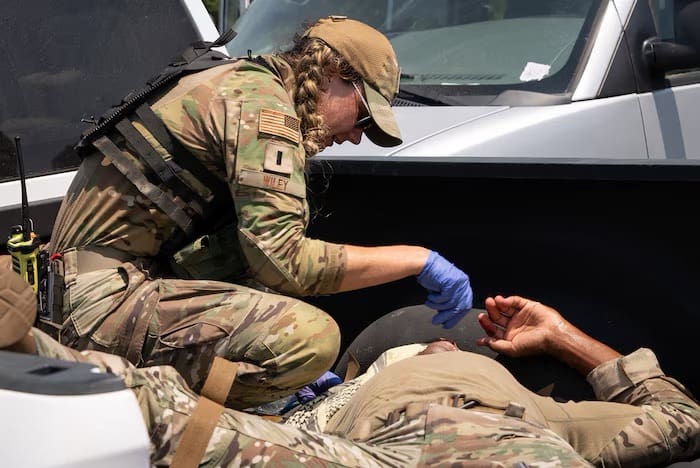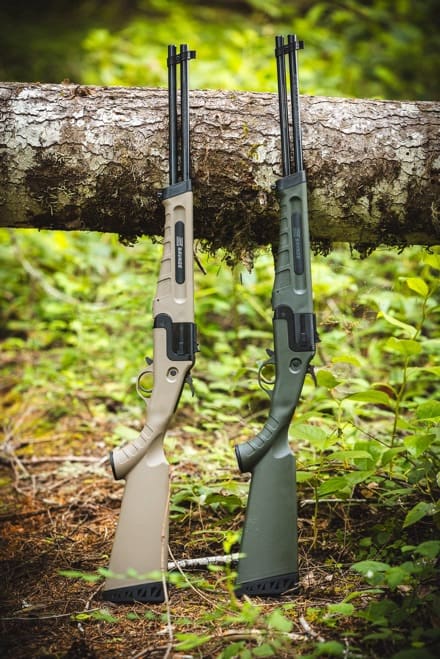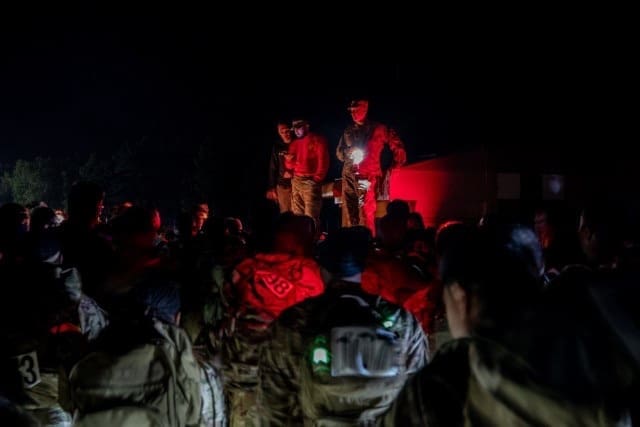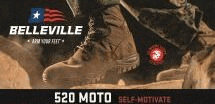EGLIN RANGE, Fla. —
Citizen Air Commandos took to the air, traversed the ground and braved rough water during a readiness exercise on the Emerald Coast Aug. 5-9, 2024.
Specialties across the 919th Special Operations Wing fought brutal summer heat, logistical challenges, and terrain across a range of scenarios they might encounter in a future fight.

“There were a lot of moving parts to this dual hat exercise and a substantial amount of planning that went in to making it happen,” said Maj. David Hornsby, 711th Special Operations Squadron chief of training. “It highlighted some areas in which the Wing did really well, and a few in which there is some room for improvement.”
Responding to scenarios that demanded an efficient and organized response for a notional country amid chaos and upheaval required exceptional planning and logistics across numerous capabilities.
These challenges allowed the wing to complete the required certification of their Special Operations Task Group and a Special Operations Task Unit in the simulated response.
The SOTG functioned as the command component of the response, tasking the SOTUs with providing specific capabilities to help mitigate the ongoing crisis. The 859th Special Operations Squadron utilized the C-146 A Wolfhound to move two Special Operations Mission Sustainment Team (SOMST) elements and their equipment between airfields.
SOMST members used the exercise to refine their skillsets, equipment, and procedures. Challenges such as heat and coordinating career specialties provided insight on how to further develop sustainment capabilities.
“It was important for us to have this integrated support team thrown into an unfamiliar environment together,” said Tech. Sgt. Michael O’Callaghan, 919th Special Operations Security Forces Squadron resource and training manager. “In a real-world scenario they would need to combine their skills in less-than-perfect conditions to accomplish the mission.”
Sustainment Airmen narrowed down their footprint by reducing the size and scope of equipment, utilizing portable items that could be hand-carried. They opted for tents, air conditioners, and other tools that are smaller than what would traditionally be used and occupied less space on the aircraft.
“We’re pressurizing the system to see where we can improve. We were able to identify needed improvements to our SOMST organization, training, and equipment that will help shape the capability moving forward,” said Col. Olivia Nelson, 919th Special Operations Mission Support Group commander. “Perhaps most importantly, we leaned into the weather and gave our Airmen a chance to experience what deployment in the heat and humidity of the INDOPACOM theater would really be like. We identified the need for greater levels of personal fitness and an emphasis on hydration and work-rest cycles that will make us more ready if called upon to face a peer threat.”
The mission support Airmen stayed in-place overnight throughout the exercise. Controller Observers from throughout the Wing placed them in a variety of scenarios and then assessed the effectiveness of their response. Some of the situations Airmen faced included unrest outside the compound, medical emergencies, and engagements with regional media.

“The team handled everything from small inconveniences like dealing with customs to larger problems like medical crises,” said O’Callaghan. “The differing levels of difficulty and engagement challenged them and encouraged them to be mindful of how they deal with adversity.”
While the SOMST maintained their encampments, the SOTU aviators also faced challenges that could parallel real-world scenarios. A simulated aircraft down left four aircrew members stranded aboard a raft in the Choctawhatchee Bay.
A C-146A Wolfhound crew coordinated rescue of the castaways with the U.S. Coast Guard. The team surveyed the bay to provide details on the rafts location and maintained communications between the raft and the Coast Guard vessel.

By the end of the exercise, the 919th SOW successfully completed various aspects of Air Force Special Operations Command warfighting model. Organizers coordinated the SOTG, SOTU and mission support elements in a way that could be reflected in real-world scenarios.
“The amount of work and time that went into all the unseen portions of the planning of this exercise, going back months, was significant,” said Hornsby. “Everyone on the planning cell did a commendable job. The [exercise] was successful and provided an excellent bellwether as to where the wing’s combat capability currently stands. It should help to provide the command a good direction in which to move forward.”
By Staff Sgt Dylan Gentile, 919th Special Operations Wing


















































































































